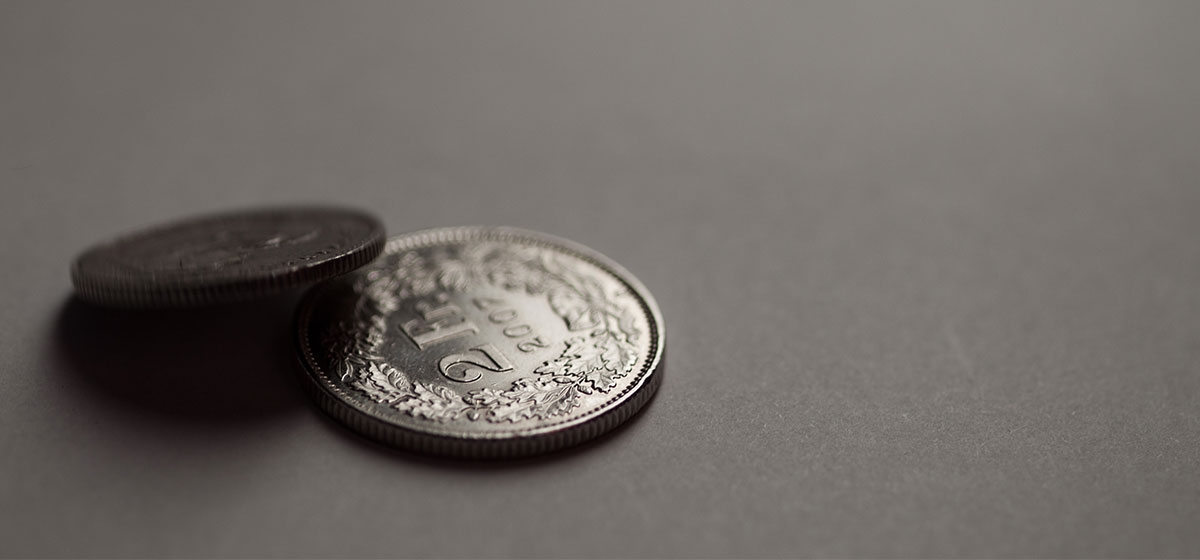Inside a Swiss Bank

I just returned from one of those whirlwind speaking tours in Europe – three speeches in four days in Zurich, Budapest and Vienna. It was an eye-opener. Back here in the U.S. we are so focused on the shenanigans going on in Washington, D.C. that we forget that very similar turmoil is convulsing the body politic in other places as well.
I’m going to start with Switzerland, which might seem, from 4,000 miles away, an island of stability. And in fact, if you stroll down the Bahnhofstrasse in the late afternoon, you could be forgiven for not being sure whether it’s 2018, 1980, or 1876. Zurich, one of my favorite cities, is forever Zurich.
In fact, though, very weird things are going on in Switzerland. The Swiss People’s Party, a right-wing populist party that is Eurosceptic and profoundly anti-immigration—and compared with which Donald Trump is a raging centrist—is the largest party in the Federal Assembly and received the highest vote total in the history of Switzerland.
Meanwhile, the left in Switzerland is also behaving badly. On June 10 the Swiss will vote on the “Vollgeld,” or sovereign money initiative, proposed by leftwing wing nuts. Believe it or not, the Vollgeld is designed to eliminate fractional reserve banking.
Possibly you are saying to yourself, what the hell is “fractional reserve banking” and who cares anyway? Ah—I see that a refresher is in order, so here is Economics 101 for fractional reserve banking.
Fractional reserve banking began before there were banks. In the late Middle Ages, the safest vaults in Europe were owned by goldsmiths, for obvious reasons. Other people who were worried about the safekeeping of their gold coins and jewelry would rent out space in these vaults, and the goldsmiths would give them receipts for whatever they had deposited. Those receipts became, in effect, the first paper money, since people accepted them as a medium of exchange.
One day, the goldsmiths woke up and realized that not all the depositors would demand their gold back at the same time. They therefore began to invest their “excess” gold deposits—their “reserves”—in interest-bearing securities. Thus was “fractional reserve banking” born before banks were born.
Eventually, banks glommed on to this nifty idea and modern deposit banking came into being. When people like you and me deposit money in a bank, it becomes the bank’s money. We may think we “own” our deposits, but in fact all we have is a contractual right to get them back on demand (or according to the conditions of a term deposit), along with our pittance of interest.
Suppose I deposit $1,000 in my bank. The bank might keep 10% of that (the “fractional reserve”) and loan out the other $900. The bank will charge more on the loans than they are paying me in interest, and thereby will make a profit. (This is, by the way, an extremely simplified version of the way it actually works; it would be more accurate to say that banks do it the other way around.)
Notice the alchemy of what is going here. I still have the right to get my $1,000 back, but there is another person out there who has the right to get back the $900 that was deposited in their bank account when they borrowed the money. My $1,000 deposit has magically been transmuted into $1,900. My bank, and its fraternity of banks, have created money, and lots of it.
But it doesn’t stop there. The borrower now has a $900 deposit at the bank. The bank might keep $90 of that deposit and loan out the rest. And so on and so on, until my measly $1,000 has created (roughly) $9,000 of new money. How cool is that? What could possibly go wrong?
Well, one of the things that could go wrong—indeed, the one that inspired the Vollgeld initiative—is your ordinary, garden-variety financial crisis. Market economies are cursed—or, we might say, blessed—with something called the business cycle. Booms are followed by busts, and vice versa.
When times are good and interest rates are low, banks loan money like crazy, borrowers borrow money like crazy, and the government cheers them on. After all, when the economy is strong, the party that’s in office tends to stay in office.
Eventually all this lunacy comes home to roost: borrowers fail to repay, banks become insolvent, depositors want their money back, and the economy blows up.
Enter the invention of central bankers, who were supposed to make financial crises obsolete. These good folks have only two important jobs, notwithstanding their own exalted view of themselves. First, when the economy gets overheated, they are the designated Party Poopers. They raise interest rates, often by a lot, and suddenly people who were delighted to borrow at 3% begin to emit choking sounds at 7%. People stop borrowing and the economy slows down.
And, of course, the opposite also happens. When the economy’s in a shambles and everybody’s depressed, central bankers become the Life of the Party. They reduce interest rates, sometimes almost to nothing (making it punitive to save) and pretty soon banks are lending again and borrowers are borrowing again and the business cycle starts all over again.
The only problem with this happy world is that central bankers are really, really lousy at their jobs. In the 1990s Alan Greenspan stood idly by as the U.S. stock market rose to the sky and as tech stocks rose higher than the sky. He kept interest rates way-too-low for way-too-long, and the result was the Tech Boom and the Tech Bust and the Asian Financial Crisis.
Not to be outdone, Ben Bernanke famously opined that housing prices were just ducky. He kept interest rates way too low for way too long, and the result was the Global Financial Crisis.
This is important because, if Vollgeld passes, banks in Switzerland will no longer be able to engage in fractional reserve banking and therefore can’t create new money. But since even the Swiss economy needs money, the Vollgeld enthusiasts had to figure out who was going to create it. Their candidate is the Swiss central bank.
But wait! Aren’t these the bozos who caused the last 39 financial crises? Would any sane person, even a leftwing wing nut, leave something as important as money creation to central bankers?
Fortunately, the answer seems to be “no.” The Swiss central bank itself has opined that the Vollgeld is a dog’s breakfast, and last I looked (Tuesday, May 15), the Vollgeld was supported by only 35% of the voters.
But don’t get too comfortable—we’ll take a look at Austria and Hungary next week.
Next up: On Illiberal Democracies, Part II





